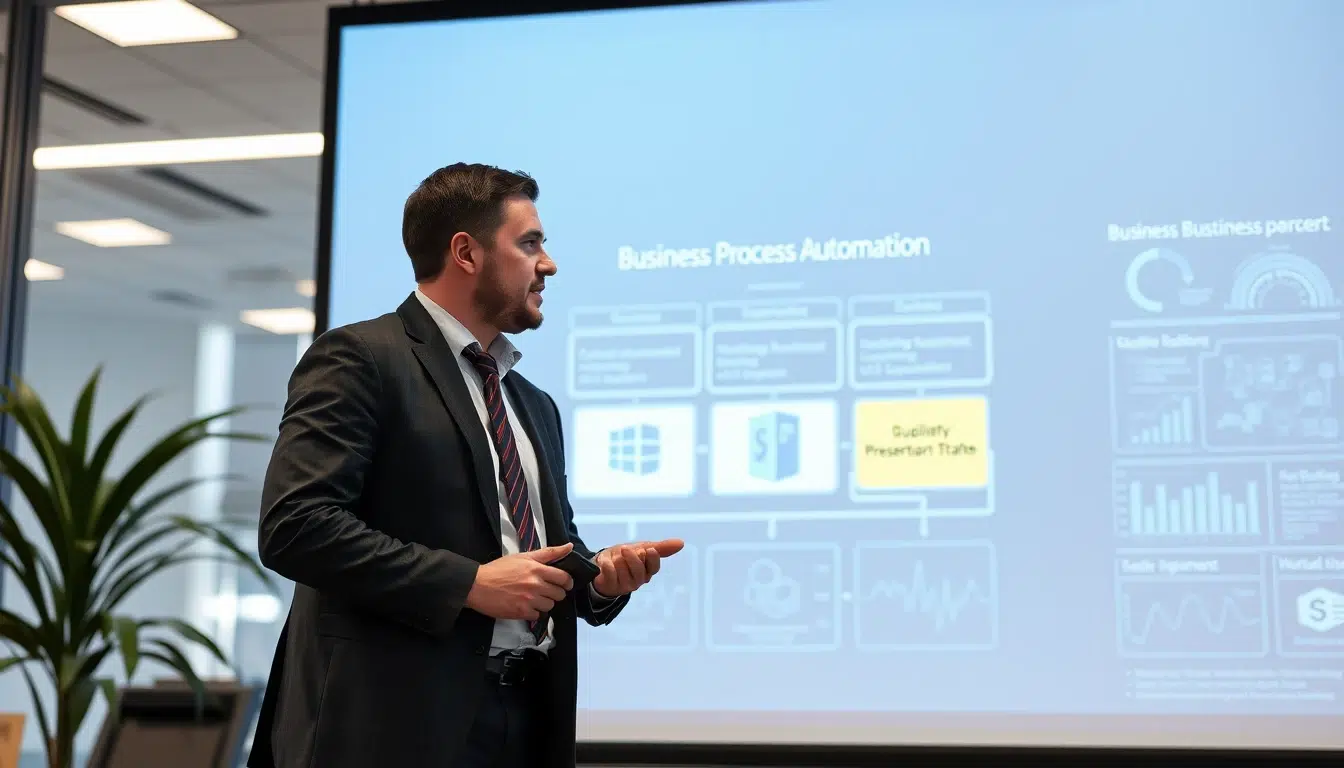Certificate in Enterprise and Solution Architecture Training Course

| Date | Format | Duration | Fees (USD) | Register |
|---|---|---|---|---|
| 07 Dec - 11 Dec, 2025 | Live Online | 5 Days | $3350 | Register → |
| Date | Venue | Duration | Fees (USD) | Register |
|---|---|---|---|---|
| 01 Dec - 05 Dec, 2025 | Cape Town | 5 Days | $5475 | Register → |
Did you know that Enterprise Architecture has evolved from merely documenting and controlling IT assets to becoming a direct enabler of transformation projects, helping organizations align IT investments with business goals, improve collaboration, and deliver tangible results?
Course Overview
The Certificate in Enterprise and Solution Architecture Training Course by Alpha Learning Centre is meticulously designed to equip professionals with essential skills in enterprise and solution architecture principles, frameworks, and implementation. This course focuses on how professionals can effectively design and implement architecture solutions that align IT infrastructure with business objectives, ensuring successful transformation initiatives and strategic alignment.
Why Select This Training Course?
Selecting this Enterprise and Solution Architecture Course offers numerous advantages for professionals involved in IT strategy and business transformation. Participants will gain advanced knowledge of architecture frameworks, solution design methodologies, and governance practices. The course provides hands-on experience with industry-standard architecture tools and real-world case studies, enabling attendees to optimise their architecture strategies effectively.
For organisations, investing in this training enhances overall strategic alignment and ensures better transformation outcomes. Research indicates that implementing comprehensive enterprise architecture frameworks results in enhanced ability to streamline compliance processes and reduce regulatory costs, as demonstrated by a global bank that integrated Enterprise Architecture with its risk management framework, reducing regulatory costs by 30%.
For individuals who complete this course will benefit from enhanced career prospects as they become more valuable assets in their respective fields. Studies indicate that professionals with enterprise architecture expertise can significantly improve their career trajectory as the field requires understanding of both technical implementation and business strategy alignment, while skills in architecture governance and stakeholder management are essential for successful transformation initiatives.
Transform your architecture capabilities – Register now for this critical advanced training programme!
Who is this Training Course for?
This course is aimed at:
- Enterprise Architects
- Solution Architects
- IT Managers
- Business Analysts
- Systems Engineers
- Project Managers involved in IT projects Professionals seeking to align IT strategy with business objectives
What are the Training Goals?
The objectives of this training course are to enable professionals to:
- Understand the principles and frameworks of enterprise and solution architecture
- Apply best practices to design and implement effective architecture solutions
- Discover strategies to align IT infrastructure with business goals
- Learn how to evaluate and manage associated architecture risks related to initiatives
- Ability to effectively communicate architectural decisions to stakeholders
How will this Training Course be Presented?
The Certificate in Enterprise and Solution Architecture Training Course delivers comprehensive, hands-on training through proven methodologies designed to maximise learning outcomes and practical skill development. Our expert instructors employ the following methods:
- Workshops and interactive sessions
- Case studies from practical perspectives
- Exercises and hands-on practice sessions
- Group Discussion
- Practical assignments
- Roleplay sessions
- Tool demonstrations
Each delivery method is carefully integrated to ensure participants gain both theoretical knowledge and practical experience. The course structure promotes active engagement and real-world application, allowing participants to develop crucial analytical and strategic skills within a supportive learning environment.
Join us to experience this dynamic and effective learning approach – Register now to secure your place!
Course Syllabus
Module 1: Strategic Enterprise Architecture
- Aligning EA with business strategy.
- Enterprise architecture frameworks (e.g., TOGAF, Zachman).
- Business capability mapping.
- Architecture vision and principles.
- Stakeholder management in EA.
- EA governance and compliance.
- Architecture maturity assessment.
- Value streams in EA.
- Business-IT alignment strategies.
- Risk management in enterprise architecture.
Module 2: Solution Architecture Design
- Solution architecture methodologies.
- Detailed design of system components.
- Integration patterns and techniques.
- Application of design patterns.
- Security architecture within solutions.
- Performance and scalability considerations.
- Solution architecture for cloud environments.
- Data architecture in solution design.
- User experience in architecture decisions.
- Legacy system modernisation strategies.
Module 3: Architecture Development Methodologies
- Iterative vs. waterfall in architecture development.
- Agile architecture practices.
- Architecture development lifecycle.
- Transition planning from current to target state.
- Architectural artifacts management.
- Managing architectural change.
- Architecture for multi-tier applications.
- Service-oriented architecture principles.
- Architecture in DevOps contexts.
- Balancing speed and quality in architecture.
Module 4: Enterprise Architecture for Business Transformation
- Architecture in mergers and acquisitions.
- Architecting for business process re-engineering.
- EA in digital transformation initiatives.
- Architecture for enterprise-wide compliance.
- Architecture to support organisational restructuring.
- Architecture-driven organisational change.
- Architecture for global business operations.
- Architecture in cross-functional team setups.
- Scenario planning with EA.
- Architecture for business resilience.
- EA for enhancing customer experience.
Module 5: Technology and Tools in Architecture
- Architecture modeling tools.
- Simulation for architecture validation.
- Tools for EA governance.
- Automation in architecture processes.
- Architecture repositories and their management.
- Virtualization and containerisation in architecture.
- Tools for enterprise integration.
- Version control for architecture documentation.
- Performance monitoring tools for architectures.
- Collaborative tools for architecture teams.
Module 6: Data Architecture
- Data strategy and governance.
- Data modeling for enterprise systems.
- Big data architecture considerations.
- Data integration techniques.
- Master data management in architecture.
- Data security and privacy architecture.
- Data lifecycle management.
- Data architecture for analytics.
- Architecture for real-time data processing.
- Data quality in enterprise architecture.
Module 7: Architecture for Enterprise Systems
- ERP system architecture integration.
- CRM system architecture design.
- Architecture for system interoperability.
- SOA in enterprise environments.
- Microservices architecture for scalability.
- Architecture for IoT integration.
- Enterprise application integration.
- Architecture for business intelligence systems.
- Architecture for legacy system retirement.
Module 8: Architecture in Project Management
- Architecture in project scoping.
- Project alignment with EA.
- Architecture-driven project risk assessment.
- Architecture in Agile project delivery.
- Managing technical debt through architecture.
- Architecture for project portfolio management.
- Architecture in project lifecycle phases.
Module 9: Architecture Governance and Compliance
- Establishing architecture governance bodies.
- Compliance with industry standards.
- Architecture audits and reviews.
- Architecture policy development.
- Managing architectural exceptions.
- Ensuring architectural compliance in projects.
- Metrics for architecture governance success.
- Architecture change control processes.
- Architecture for regulatory compliance.
Module 10: Architecture for Business Continuity
- Disaster recovery architecture.
- Business continuity planning through architecture.
- Architecture for high availability systems.
- Failover strategies in architecture.
- Architecture for system redundancy.
- Ensuring data integrity in architecture.
- Architecture for crisis response.
Module 11: Stakeholder Engagement in Architecture
- Communicating architecture to diverse stakeholders.
- Architecture workshops for consensus building.
- Managing stakeholder expectations through architecture.
- Architecture as a tool for conflict resolution.
- Architecture storytelling for strategic alignment.
- Training stakeholders on architecture concepts.
- Architecture in change management communication.
Training Impact
The impact of enterprise and solution architecture training is evident through various real-world case studies and data, which demonstrate the effectiveness of structured programmes in enhancing strategic alignment and transformation outcomes.
Research indicates that professionals with strong enterprise architecture skills can help organisations overcome significant challenges in architecture adoption by starting small and showing quick wins, building a community of practice, measuring and communicating value, adopting a product-led approach, and leveraging AI and automation.
These case studies highlight the tangible benefits of implementing advanced enterprise architecture techniques:
- Improved strategic alignment between IT and business objectives
- Enhanced transformation outcomes through structured architecture approaches
- Increased efficiency in project delivery and system integration
- Strengthened governance and compliance frameworks
By investing in this advanced training, organisations can expect to see:
- Significant improvement in business-IT alignment
- Improved ability to handle complex transformation initiatives
- Enhanced decision-making capabilities through architectural insights
- Increased competitiveness through comprehensive architecture strategies
Transform your career and organisational performance – Enrol now to master Enterprise and Solution Architecture!








